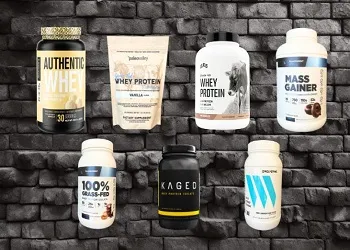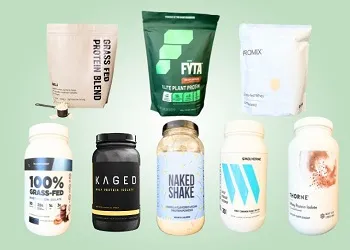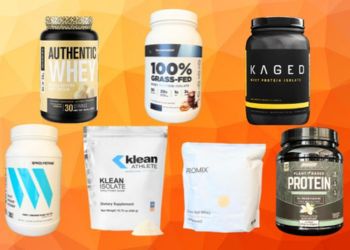While there is no one-size-fits-all answer to how much water you should consume with creatine, general guidelines suggest that individuals should aim for a daily water intake of around 8-10 glasses (64-80 ounces). However, it’s important to note that this recommendation can vary depending on factors such as body weight, activity levels, and climate conditions.
Creatine supplements have been widely studied and shown to improve anaerobic exercise performance, and increase muscle strength, and power output. Creatine consists of three amino acids: glycine, arginine, and methionine.
Many individuals choose to incorporate a creatine supplement into their fitness routine to maximize their training efforts and achieve their desired results. However, individuals often question, “What is the optimal water intake alongside creatine supplementation?”
In this article, we will explore the relationship between water consumption and creatine, addressing the importance of hydration for maximizing the benefits of this widely used supplement.
Table of Contents
Quick Summary
- Creatine is synthesized from amino acids (glycine, arginine, and methionine) and stored as phosphocreatine in muscles.
- Supplementation increases phosphocreatine stores, enhancing ATP production and improving high-intensity exercise performance.
- Creatine supplementation increases water demand within muscle cells, emphasizing the importance of adequate hydration.
- General recommendations suggest a daily water intake of 8-10 glasses (64-80 ounces) for individuals using creatine.
- For mixing 5 grams of creatine, a common guideline is 8 to 10 ounces (240 to 300 ml) of water, but individual needs may vary.
The Importance of Hydration
Before diving into the specifics of water consumption with creatine, it’s essential to understand the overall significance of hydration for our bodies. Staying hydrated is crucial for maintaining bodily functions, regulating body temperature, and supporting overall health.
Water is involved in numerous physiological processes, including nutrient absorption, digestion, and waste removal. It also helps lubricate joints, cushion organs, and transport oxygen and nutrients to cells.

How Does Creatine Affect Hydration?
Creatine’s Biological Synthesis
To understand how creatine affects hydration, we need to grasp its biological synthesis. Our bodies naturally produce creatine in the liver, kidneys, and pancreas, combining the amino acids arginine, glycine, and methionine.
After synthesis or dietary intake, creatine is transported through the bloodstream to skeletal muscles. In the muscles, creatine is stored in the form of creatine phosphate.
When you supplement with creatine, stores of phosphocreatine will increase. This stored form of energy in the cells will produce more adenosine triphosphate (ATP), the body’s energy currency. The more ATP the better your body will perform during exercise. This will then provide a key energy source for high-intensity exercise or heavy lifting.
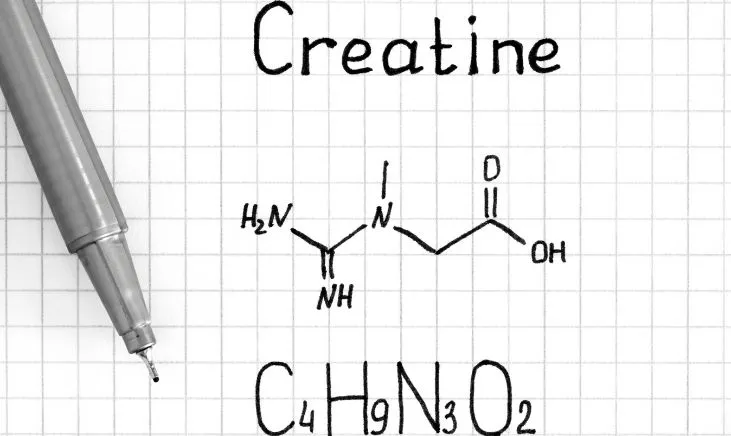
Creatine’s Impact on Hydration
Creatine works by increasing the production of ATP, the primary source of energy for muscle contractions. As a result, creatine intake can lead to an increased demand for water within muscle cells. This means that adequate hydration becomes even more crucial when taking creatine.
How Much Water Should I Drink When Taking Creatine?
While there is no one-size-fits-all answer to how much water you should consume with creatine, general guidelines suggest that individuals should aim for a daily water intake of around 8-10 glasses (64-80 ounces). However, it’s important to note that this recommendation can vary depending on factors such as body weight, activity levels, and climate conditions.
How Much Water Do I Mix With 5 Grams of Creatine?
The recommended amount of water to mix with creatine can vary based on personal preferences, but a common guideline is to mix 5 grams of creatine with about 8 to 10 ounces (240 to 300 ml) of water. This is a general recommendation and should provide enough liquid to help dissolve the creatine powder and make it easier to consume.
Creatine is often taken with water, juice, or a beverage of your choice. It’s essential to stay hydrated, so make sure to drink additional water throughout the day as well. Additionally, you can follow any specific instructions provided by the creatine supplement you are using, as different products may have different recommendations.
If you have any concerns or specific dietary needs, it’s always a good idea to consult with a healthcare professional or a nutritionist for personalized advice.
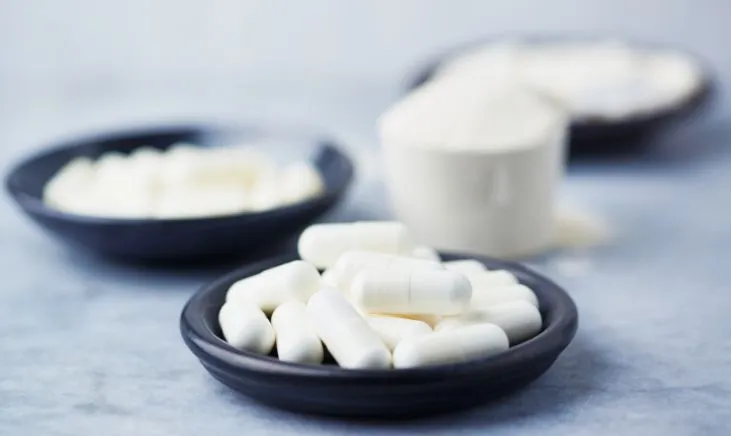
Does Creatine Supplementation Cause Water Retention?
Another concern often raised regarding creatine supplementation is water retention. Due to its ability to increase the water content within muscle cells, some individuals worry that creatine can cause bloating and weight gain.
Although there is evidence indicating that creatine supplementation can lead to short-term water retention, mainly due to heightened intracellular volume, numerous studies propose that it does not significantly affect overall body water (both intra and extracellular) relative to muscle mass over extended periods.
Consequently, the consensus suggests that creatine supplementation may not result in prolonged water retention.
Does Creatine Cause Dehydration and Muscle Cramps?
The speculation that creatine supplementation may lead to dehydration and muscle cramping has historical roots, with early 2000s guidelines from the American College of Sports Medicine advising against creatine use in weight-conscious individuals engaging in intense or hot environment exercises.
The concern stems from the notion that creatine might influence whole-body fluid distribution by increasing intracellular water, potentially causing short-term issues during situations of body water loss, such as intense exercise in hot conditions.
Some anecdotal evidence reports adverse effects, such as cramping, in creatine users.
Contrary to these reports, experimental and clinical evidence suggests otherwise. A study monitoring Division IA NCAA collegiate football players in hot and humid conditions found that creatine users had significantly fewer cramps, heat-related issues, dehydration, muscle tightness, muscle strains, and overall injuries compared to non-users.
Overall, while concerns have been raised about creatine supplementation, recent research does not validate the notion that creatine supplements cause dehydration and muscle cramping.

Factors Influencing Water Needs
Several factors can influence an individual’s water needs while using creatine. Firstly, body weight plays a significant role. A larger body mass requires more water for optimal hydration.
Similarly, physical activity level and climate also impact water requirements. Sweating during exercise and exposure to hot weather increases fluid loss, necessitating higher water intake.
It is important to note that individual differences exist when it comes to the ideal amount of water with creatine supplementation. Some people may find that their current daily water intake is already sufficient to support the increased cell volumization caused by creatine. Others might require additional hydration to ensure
- Body Weight: Larger individuals typically require more water to stay adequately hydrated. A common guideline is to consume about 30-35 milliliters of water per kilogram of body weight.
- Activity Level: Sweating during physical activity increases fluid loss, necessitating higher water intake. Athletes engaged in intense training may need to consume more water than sedentary individuals.
- Climate: Hot and humid conditions increase sweating, demanding additional water intake to prevent dehydration.
Tips for Staying Hydrated While Taking Creatine
To ensure you stay properly hydrated while taking creatine, here are some practical tips to consider:
- Drink water throughout the day: Make it a habit to sip water regularly throughout the day, rather than relying on large amounts of water at once.
- Track your water intake: Use a water bottle with measurements or a smartphone app to track your daily water consumption. This will help you ensure you are meeting your hydration goals.
- Avoid excessive caffeine and alcohol: Both caffeine and alcohol can contribute to dehydration, so it is best to limit your consumption while supplementing with creatine.
- Consume hydrating foods: Include water-rich foods in your diet, such as fruits and vegetables, to supplement your water intake.
- Listen to your body: Pay attention to signs of dehydration, such as dark urine or feelings of thirst, and respond by drinking more water.
By following these tips, you can maintain proper hydration levels and maximize the benefits of creatine supplementation.
Benefits of Creatine Supplementation
The wealth of research on creatine underscores its primary benefits in the following ways:
- Enhances strength and power output
- Modestly increases lean mass when paired with resistance exercise
- Reduces body fat in trained athletes
- Enhances stored energy
- Improves high-intensity exercise performance
- May alleviate mental fatigue, especially in high-stress situations involving sleep deprivation or exhaustive exercise
- Enhances certain aspects of memory, particularly for individuals with lower baseline creatine levels, such as vegetarians and older adults
- Preliminary findings even hint at a potential role in alleviating symptoms of depression in individuals with major depressive disorder or bipolar disorder. Despite these intriguing possibilities, further research is essential to establish creatine’s effectiveness in cognitive performance and mental health comprehensively.
It’s important to note that individual responses to creatine supplementation may vary, and consulting with a healthcare professional or nutrition expert before starting any supplementation is advisable, especially for those with pre-existing health conditions
The Bottom Line
In summary, proper hydration is crucial for individuals using creatine to optimize their athletic performance. While creatine does lead to increased water retention within muscle cells, it should not be a cause for concern regarding overall hydration status.
By understanding your individual water needs and adjusting your intake accordingly, you can ensure that creatine supplementation enhances your performance without compromising hydration. Always consult with a healthcare professional or nutritionist for personalized advice based on your specific circumstances.
Frequently Asked Questions
What is the proper way to take creatine?
The most common and effective way to take creatine is to mix it with water or a non-acidic beverage. A typical creatine monohydrate dose is 3-5 grams per day, and it’s often recommended to take it around the same time each day for consistency. Some people prefer to mix creatine with a protein shake or fruit juice to enhance the taste. The key is to ensure that the creatine is fully dissolved in the liquid to optimize absorption. Additionally, taking creatine with a source of carbohydrates can enhance its uptake by muscle cells.
What should you not mix creatine with?
While creatine is versatile and can be mixed with various beverages, there are a few considerations. Avoid mixing creatine with highly acidic drinks, as acidity may affect its stability. Drinks like orange juice or caffeinated beverages with high acidity may not be the best choices. It’s also advisable to avoid mixing creatine with hot liquids, as heat could potentially degrade the creatine molecule. Stick to room temperature or cold liquids for optimal results.
Can you take creatine without water?
While water is the most common and recommended liquid for mixing creatine, it’s not the only option. You can mix creatine with various non-acidic beverages like fruit juice, sports drinks, or a protein shake. The key is to ensure the creatine is fully dissolved in the liquid to facilitate absorption. While it’s technically possible to take creatine in powder form without mixing it with a liquid, doing so may lead to a gritty texture and could be less palatable.






